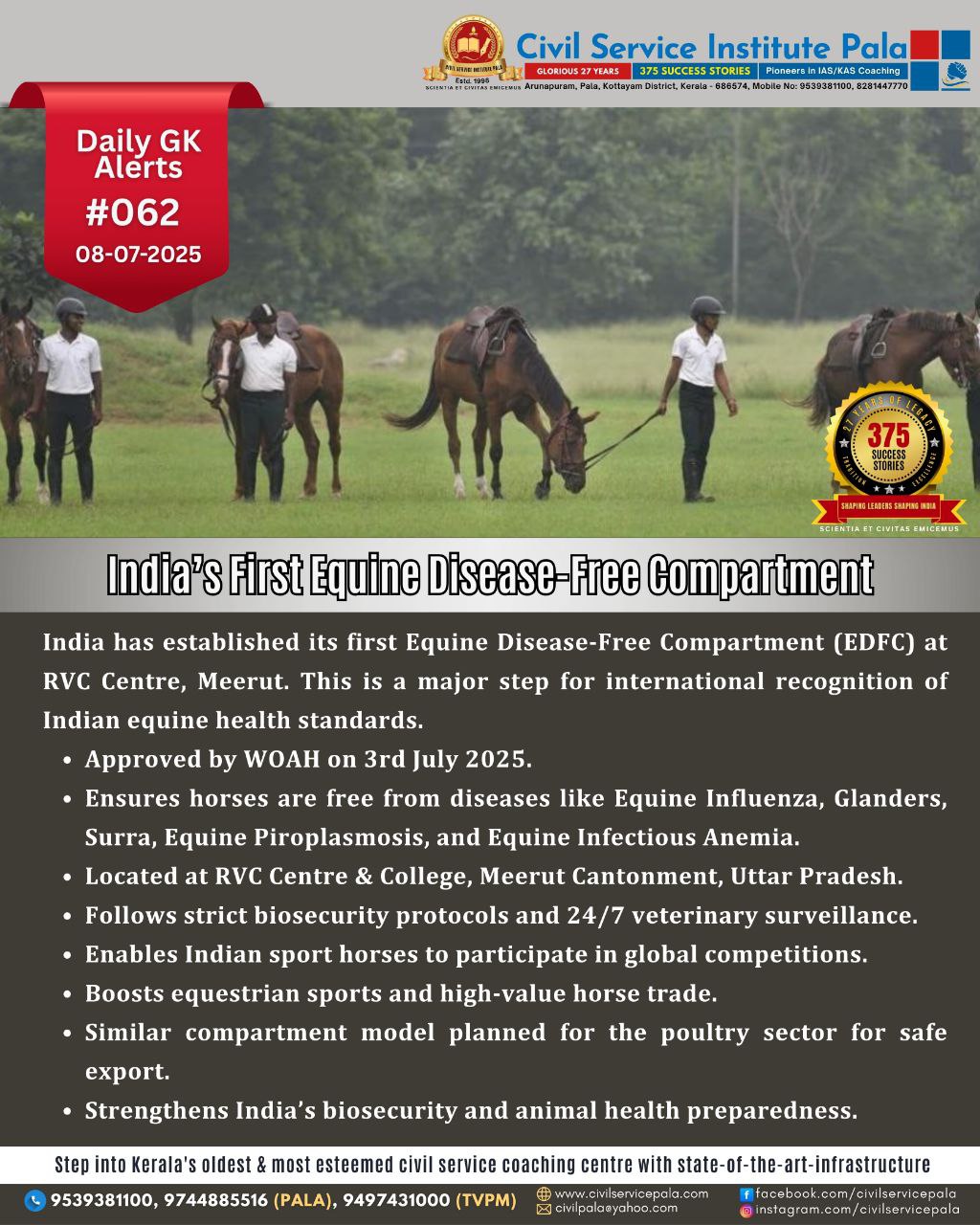
India’s First Equine Disease-Free Compartment
India’s First Equine Disease-Free Compartment: A Milestone
India has achieved a major breakthrough by setting up its first internationally recognised Equine Disease-Free Compartment (EDFC) at the Remount Veterinary Corps (RVC) Centre & College, Meerut, Uttar Pradesh. This facility has received approval from the World Organisation for Animal Health (WOAH) on 3rd July 2025.
What is EDFC?
The EDFC is a specially managed zone ensuring that horses remain free from specific equine diseases. It maintains high veterinary standards and biosecurity, enabling Indian sport horses to travel and compete globally without health-related restrictions.
Key Features and Standards
The compartment has been officially declared free from diseases like Equine Influenza, Glanders, Surra, Equine Piroplasmosis, and Equine Infectious Anemia. India has also remained free of African Horse Sickness since 2014. Strict Standard Operating Procedures (SOPs) are followed, covering hygiene, pest control, waste management, and continuous animal health monitoring. The facility adheres to WOAH’s Terrestrial Animal Health Code, ensuring effective compartmentalisation by maintaining a defined sub-population of healthy animals.
Impact and Benefits
This initiative boosts India’s prospects in equestrian sports by enabling its horses and riders to participate in global events. It promotes high-value equine trade, strengthens veterinary surveillance, and enhances India’s biosecurity framework. The successful collaboration between the Ministry of Fisheries, Animal Husbandry and Dairying, Ministry of Defence, and other agencies made this achievement possible.
Future Scope
India is also applying similar models in the poultry sector to develop Highly Pathogenic Avian Influenza (HPAI) Free Compartments for safe export of poultry products.
The establishment of EDFC reflects India’s commitment to international animal health standards, paving the way for global trade, sports excellence, and robust biosecurity preparedness.



